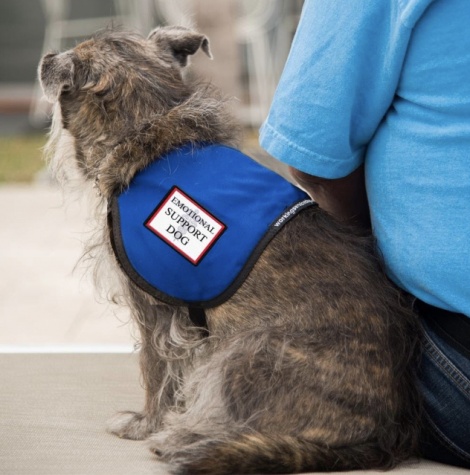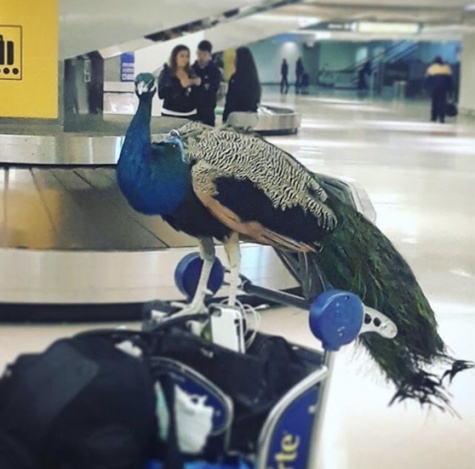
Grace Parry | Writer
March 2, 2021
With airlines, resorts, and many other places beginning to ban Emotional Support Animals, the fake service dog epidemic should come to an end, or at least not be as prominent.
This is not to say that all Emotional Support Animal (ESA) users are faking anything. A vast number of them do have true disabilities and need the help of the ESAs, however, many people do use the guise of needing an ESA to bring their pets with them wherever they want (leading to a shocking number of attacks, most frequently against real service animals, but also to people- as well as many of these animals not being able to perform any sort of task such as emotional support turkeys, peacocks, kangaroos, spiders, and snakes). Junior Maxwell Silva said, “I saw a lady one time who was fighting with a flight attendant about having to move seats when the lady she was sitting next to was allergic to her cat.”
In order for an ESA to be considered an ESA, the handler needs to have a disability, mental, or physical, that limits their life activities, and the animal must need to be able to perform specific tasks or services to alleviate the effects of a disability. Because the certification of these animals can be quite cheap, many people register their pets so that they can take them wherever they go causing great harm and inconvenience to people who do have disabilities.

The banning of Emotional Support Animals is a huge leap forward for many while for some it is an inconvenience that their animal can no longer fly with them or go to private spaces. If those with real disabilities are able to prove that their animal performs tasks to help them with their disability and the animal (now required to be a dog) is able to pass basic service dog training, they will be able to be a psychiatric service animal and can go on with their handlers. Because there is no service animal registry but many places where you can register an ESA to give people cards, it creates misinformation about the registry and many service animal users are facing problems caused by this.
Because of the abundance of fake service animals, real service dogs and their owners are now being turned away from businesses who have had problems in the past with other animals. Junior Joshua McDonald said, “I don’t know if it was a real service dog or not but I saw a lady and her dog being turned away from a restaurant.” Many service dog users now have a service dog permit which includes a serial number that can be used to prove its authenticity, and the animals are required to be recertified every five years, sort of like a drivers license. For many service dog handlers the banning of ESAs is a great thing because untrained dogs have distracted their service animals from important tasks including guiding blind people, alerting deaf people to noises, and not noticing when their handlers need help. Studies have shown that up to 77% of service dog users have had encounters with out of control fake service animals, half of which were bitten or snapped at by these fake ESAs.
While both good and bad have come of banning ESAs, the majority of service animal users would agree that the fake service animal epidemic needs to come to an end.

Leave a Reply